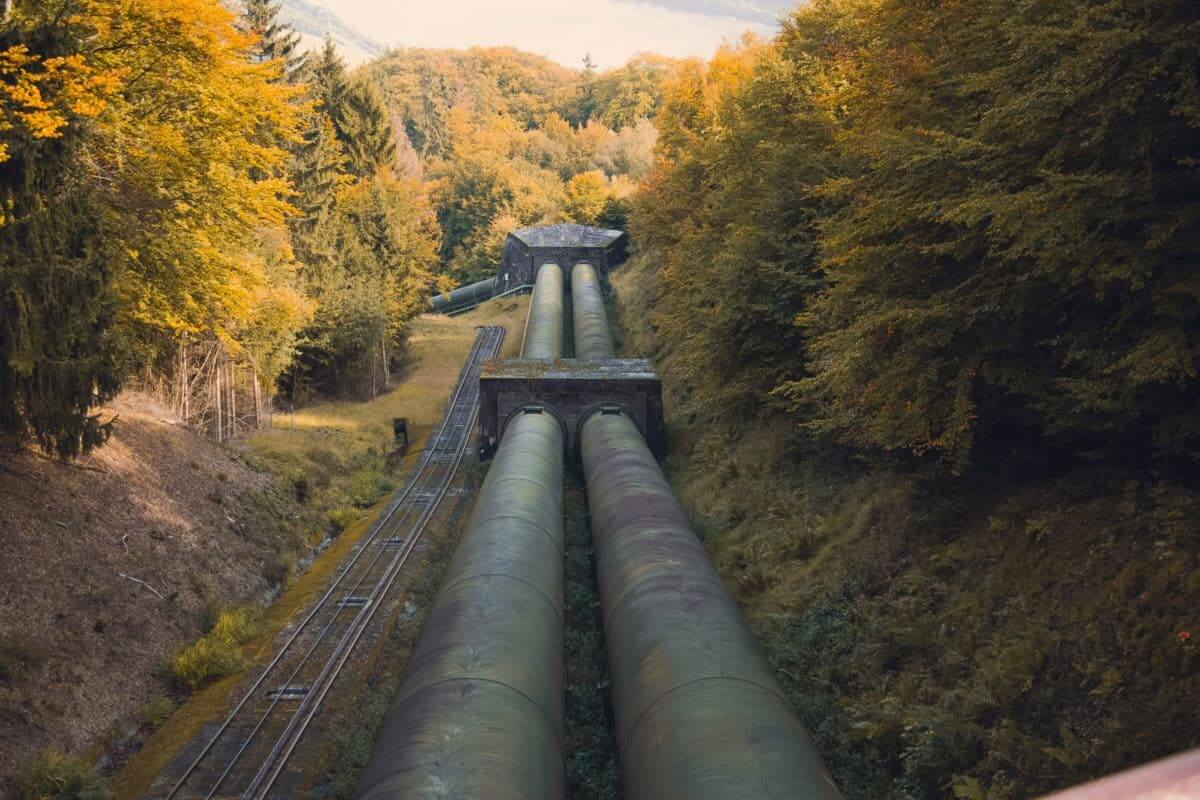Europe’s Gas Storage Hits Record High
Europe finds itself in an unusual predicament as gas storage levels reach record highs. While the headlines might suggest abundant energy security, there’s more to the story than meets the eye. With the primary focus on “gas storage,” let’s delve into the complexities that lie beneath the surface and why winter worries still persist across the continent.
The European LNG Boom: A False Sense of Security
Earlier this week, it was reported that Chevron was in discussions regarding LNG shipments destined for the European Union, with a focus on contract conditions spanning 15 years. This news follows a series of long-term deals between European energy companies and Qatar, one of the world’s largest LNG exporters. Germany, in particular, has embraced this trend, having established three floating LNG import terminals in the past year, with intentions for three additional ones. The European Union, as the biggest importer of U.S. LNG, takes pride in claiming that gas storage is almost 100% full.
However, this apparent security is misleading, as “U.K. gas storage” remains a primary concern. The significant investments in LNG infrastructure have not translated into a guarantee of uninterrupted winter supplies, which leads to further questions regarding Europe’s preparedness for the energy transition.
Gas Storage Shortfalls: A Persistent Challenge
European countries have been increasingly storing gas in Ukraine as their own storage caverns fill up with regasified LNG purchased earlier this year. The impending arrival of nearly 30 LNG tankers, including three Russian vessels, contradicts the E.U.’s declarations about reducing reliance on Russian hydrocarbons. These actions underscore the fact that Europe’s efforts to reduce hydrocarbon dependence are yet to bear fruit despite robust investments in wind and solar energy.
The core issue lies in Europe’s limited gas storage capacity, which is incapable of sustaining winter demand even at full capacity. This predicament necessitates continued gas imports, emphasising the ongoing challenges related to gas storage in Europe.
The Paradox of Full Storage and Winter Insecurity
Currently, gas storage in Europe is at a record high, which, in normal circumstances, would be a cause for celebration. However, the paradox is that even 100% full storage capacity does not guarantee uninterrupted supply during the winter. No European Union member has a storage capacity sufficient to meet 100% of its demand for a meaningful period. This insufficiency underscores the need for continued gas imports to bridge the gap, even when storage capacity is at its maximum.
This problem is exemplified by the E.U.’s decision to store gas in Ukraine despite the potential risks associated with war-related disruptions or storage loss. Additionally, the recent calls from Germany’s electricity market regulator to curb consumption further highlight the challenges in ensuring adequate supply during the winter, irrespective of the amount of gas in storage.
Global LNG Market Tightness and Europe’s Dilemma
The tightness in the global LNG market is a significant factor contributing to Europe’s winter worries. This tightness has been exacerbated by Europe’s transition from Russian pipeline gas to LNG, with over 100 billion cubic meters of Russian pipeline gas no longer available. The earlier declarations that the E.U. could function without Russian gas have proven premature. The notion that the E.U. could rely solely on wind, solar, nuclear, and hydro energy, possibly with some hydrogen, also appears to be an impractical ambition.
This is evident in the long-term LNG supply deals with Qatar, each spanning 27 years. While the E.U. aims for net-zero emissions by 2050, the reality is that achieving total gas independence is an uphill battle, and these lengthy contracts indicate an awareness of the challenges ahead.
Overbuilding of LNG Import Capacity and Future Projections
In light of its ambitious goals, the E.U. may be overextending itself. According to the Institute for Energy Economics and Financial Analysis (IEEFA), the EU is currently overbuilding LNG import capacity. The IEEFA’s recent report highlights that since the start of 2022, 36.5 billion cubic meters of new LNG import capacity have been added. LNG consumption has only increased by 4.8 billion cubic meters since the start of 2023 after a substantial surge last year.
The projection that import capacity will expand to 406 billion cubic meters by 2030, while gas demand is expected to decline to 400 billion cubic meters over the same period, raises concerns. High LNG prices may naturally cap demand in Europe and have implications for economic growth, reminding Europe of its reliance on affordable and reliable energy.
The Gas Storage Paradox and Winter Ahead
The record-high gas storage levels in Europe offer a misleading sense of security. The EU’s inability to guarantee uninterrupted supply during the winter is a critical concern, primarily due to the limited storage capacity and the challenges of the energy transition. The continent’s heavy reliance on LNG imports and the overbuilding of LNG infrastructure create further complexities in addressing this problem.
As “gas storage” remains at the forefront of Europe’s energy challenges, it is evident that the E.U.’s path towards energy independence and a seamless transition to cleaner alternatives is fraught with difficulties. Winter worries persist, and the continent must navigate the fine line between ambition and practicality in achieving its energy goals. Europe’s gas storage situation may be at a record high, but the road ahead remains treacherous.
The post Europe’s Gas Storage Hits Record High appeared first on FinanceBrokerage.






























